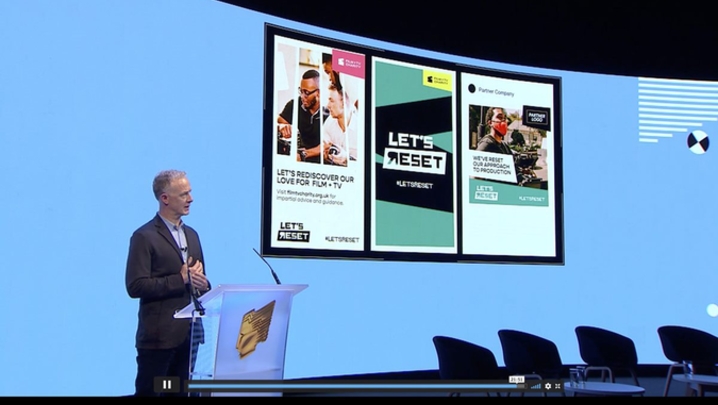An RTS Midlands event provided advice to workers who have experienced bullying on set or in the studio.
Harassment, bullying and discrimination would appear as endemic to TV production as flair, creativity and honest toil. It is a freelance industry that, to its shame, all too often takes advantage of its workers during long, stressful days on set. If a manager oversteps the mark and starts to harass and bully, what can a freelancer do? It often feels as if the choice is between grinning and bearing it or quitting.
Speaking at an RTS Midlands event, “Toxic TV: How to call out bullying”, director Delyth Thomas put the problem succinctly: “It is very problematic if you are a freelancer, because you’re financially vulnerable [which means] you live or die by your reputation. It’s difficult to whistleblow and maintain a career.”
TV’s vast freelance army, though, does have rights, explained Birmingham-based employment lawyer Eileen Schofield. “There is a misconception that they are not protected,” she said, but the protection freelancers receive under the Equality Act 2010 is the same as for employees. “They have every right to pursue any formal grievance against [someone] they feel has bullied, harassed or victimised them in any way.”
Thomas, whose directing credits include Vera, Silent Witness and The Story of Tracy Beaker, is a passionate advocate for a fair and inclusive industry, and is one of the founders, with Jules Hussey and Kate Wilson, of the new Call it! app (www.callitapp.org).
The idea came out of a conversation Thomas had with a young actor who had experienced bullying but felt powerless to do anything about it. She said: “I wanted to do something to [allow people] to speak out but without fear of reprisal.”
When a production company signs up to Call it!, its workers can record their daily treatment, anonymously, via a traffic-light system, and make a note of any incidents of workplace bullying or harassment. The app is in its pilot phase but is expected to launch at the end of this month.
Thomas said: “It gives every single person on a show a voice and the chance to be heard, without being named.”
Bafta’s director of learning and new talent, Tim Hunter, has overseen new Bafta and BFI measures to tackle bullying, harassment and racism. These include an “action list”, setting out employers’ responsibilities.
But do employees also have a moral responsibility to speak out against any harassment or bullying they witness in the workplace? “It’s easier said than done to call out other people’s behaviour,” admitted Hunter. He recommended taking a measured approach, using a form of words such as, “You didn’t have to speak in that way.” He added: “Try and do it in a sympathetic way: ‘Are you stressed? Is something going on?’ [This] will set the tone that
a different culture is expected on set.”
Hunter revealed that the BFI is piloting safeguarding officers on some productions and “creating a job description, which will be shared with the industry.… We want broadcasters and funders to agree to include that cost [in the budget].
“But productions that are smaller… need a solution that works for them,
so it could be an HR organisation on a retainer, or a relationship with another production company of a similar size.”
It should be in the interest of a production company to take this seriously, both from a moral and a financial standpoint. If an indie fails to deal
with harassment or bullying, it – and, potentially, the person doing the bullying – could be hit with significant penalties by an employment tribunal.
“Awards can be pretty high… sometimes from £10,000 to £50,00 for an injury to feelings… so prevention is better than cure,” argued Schofield. “Let’s get people trained up, let’s get people understanding what the boundaries are so there is an opportunity to raise [bullying] at an early stage. Nip it in the bud… so it doesn’t escalate and become a big issue.”
She continued: “If you have employees, then you have to have HR expertise because you have huge statutory obligations when you’re employing people, not least to get the right contracts in place to start with… and then [to offer] the day-to-day support for employees.”
However, Thomas pointed out the scale of the challenge: “I’ve had two HR meetings in my whole career. There is a huge amount of work to be done by the industry for us, as freelancers, to perceive HR as being anything other than the people who protect the company and not us.”
Bullying and harassment - the law
Is there a difference between bullying and harassment?
The Anti-Bullying Alliance defines bullying as ‘repetitive, intentional hurting of one person or group by another person or group, where the relationship involves an imbalance of power. It can happen face to face or online.’
Harassment, however, explained employment lawyer Eileen Schofield, ‘is aligned to a protected characteristic under the Equality Act… gender, race, disability, sexual orientation and religion…
‘Bullying and harassment are almost interchangeable, but the legal impact is different.… It is a very subjective test: while one person may feel a comment or action is acceptable… it might not be to another person… It’s a very complicated subject [with] lots of case law.’
‘One person’s banter is another person’s harassment,’ added director Delyth Thomas. ‘It is a tricky area: there are some things that are clear cut and some things that are not.’
How widespread is the problem?
According to the report Looking Glass 2021: Mental health in the film and TV industry after Covid, published last month by The Film and TV Charity, ‘57% of respondents had experienced bullying, sexual harassment, racial harassment or discrimination, or other forms of harassment or discrimination in the past year’. In total, 39% of black, Asian and minority ethnic respondents had ‘experienced racial harassment or discrimination… which had caused 43% of them to consider leaving the industry. Only 10% of respondents agreed that the industry is a mentally healthy place to work.’
How do you prove bullying and/or harassment?
‘Make a record of those incidents… a date and a time is really helpful… [as] is any documentary evidence, such as emails that are inappropriate.… Identify the people around you when the [bullying] happened… if you want to take formal action such as a grievance,’ said Schofield.
Where to go for help
The Film and TV Charity has guidance on how to record bullying (at app.talktospot.com/flows) and a 24/7 support line (0800 054 0000).
The BFI has produced comprehensive guidance on tackling and preventing bullying, harassment and racism in the screen industries – see: bit.ly/bfi-bully.
ScreenSkills has developed an e-learning module, building on the principles developed by the BFI and Bafta to help people recognise and address harassment and bullying behaviours in themselves and others – see: bit.ly/screen-bully.
Bectu’s help pages are at: bit.ly/Bectu-bully and Equity’s are at: bit.ly/Equity-bully.
Report by Matthew Bell. The RTS Midlands event, ‘Toxic TV: How to call out bullying’, was held on 18 February and chaired by TV producer Perjeet Aujla.







